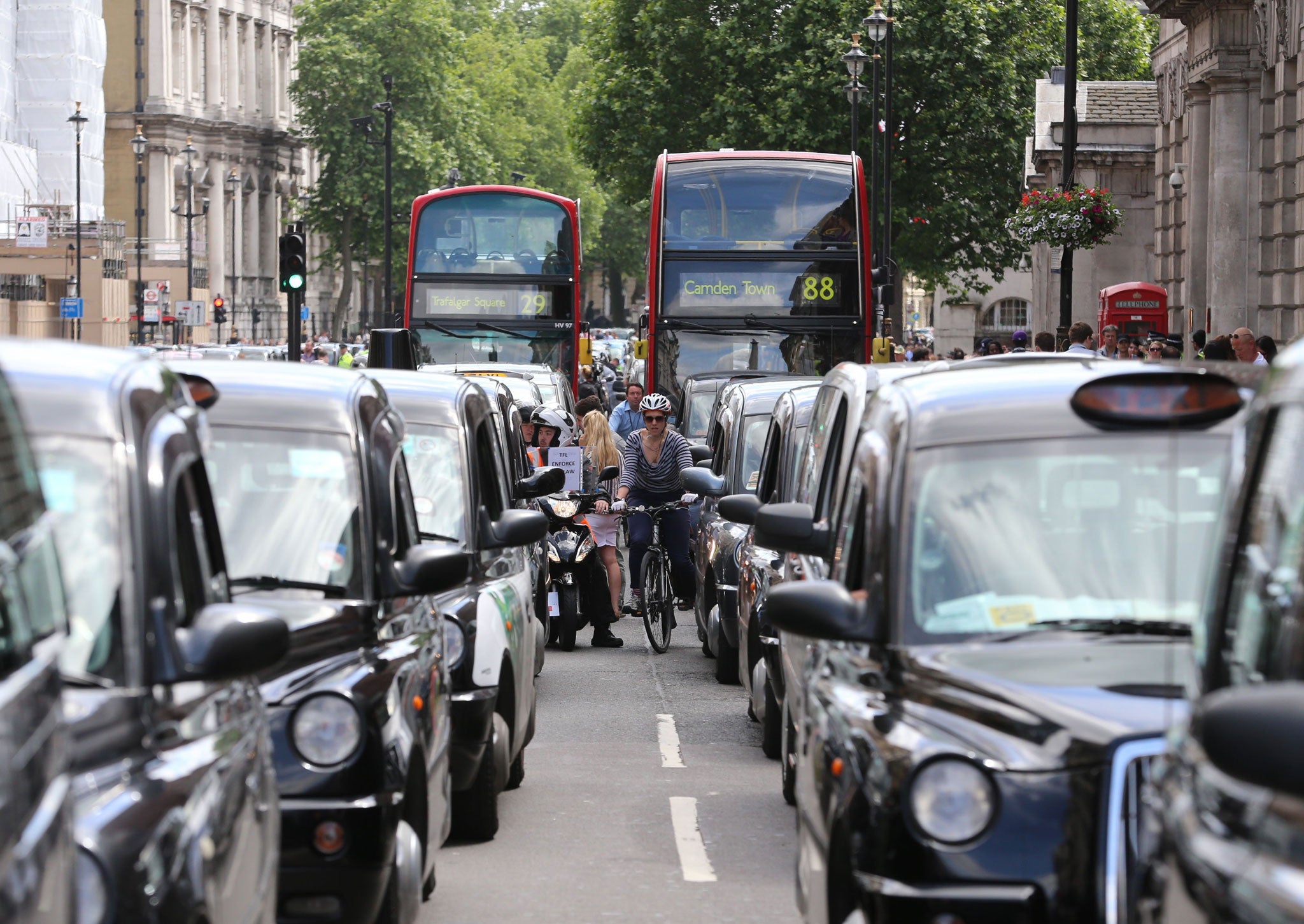Minicabs and taxis unite: London deserves better than Uber
The company is no entrepreneurial force for competition. They're backed by corporate titans like Goldman Sachs, and incur no tax liabilities in the UK

Your support helps us to tell the story
From reproductive rights to climate change to Big Tech, The Independent is on the ground when the story is developing. Whether it's investigating the financials of Elon Musk's pro-Trump PAC or producing our latest documentary, 'The A Word', which shines a light on the American women fighting for reproductive rights, we know how important it is to parse out the facts from the messaging.
At such a critical moment in US history, we need reporters on the ground. Your donation allows us to keep sending journalists to speak to both sides of the story.
The Independent is trusted by Americans across the entire political spectrum. And unlike many other quality news outlets, we choose not to lock Americans out of our reporting and analysis with paywalls. We believe quality journalism should be available to everyone, paid for by those who can afford it.
Your support makes all the difference.Today, London’s taxis are taking to the streets to protest against Transport for London's decision to licence app-based operator Uber. The minicab industry stands behind the taxis, whose action – at cost to their own earnings – will hopefully serve to highlight the very real safety and competition issues at stake.
Uber suggests that they are bringing competition to an industry that hasn’t evolved in years. However, London’s taxi and private hire market has been for many years one of the most vibrant and competitive in the world. This is a direct result of the current regulatory regime, which created a vibrant and safe market for our sector’s customers. Uber’s operating model directly undermines the existing regulatory regime and with it, fair competition and the safety of customers.
Private hire vehicle (PHV) Licensing delivered a two-tier system that offers Londoners the choice of 25,000 Taxis or some 60,000 licensed PHVs, which can be booked via over 3,000 Licensed Operators in London. That two-tier system splits taxi drivers and PHV drivers. Taxi drivers have the skill-set to pick-you up and take you anywhere in London without the need to reference an atlas; they charge via a ‘metered’ tariff set by TfL. By contrast, PHV drivers will often need to pre-plan the journey with the use of an atlas and or other navigational aids; their services are available usually for a lower fare that can be determined before travelling. As Taxis have the ‘knowledge’, the right to be ‘flagged down’ and ‘meter’ journeys are reserved to them under the present regulatory system.
The two-tier rules are in place for both safety and the financial protection of the travelling public. The PHV market is not arguing that they should never change – our members have been at the forefront of technological innovation in London, and it is right and necessary that the regulations adapt to meet the conditions of the modern world. However, while the rules are as they are, all market participants should adhere to them. We therefore strongly object to the development of an effective third-tier of ‘app only’ based providers arrogantly coming into the London marketplace, specifically disrupting it for their own commercial reasons that ignore the laws that have worked well in the Taxi industry for hundreds of years and in the PHV industry for over a decade, since PHVs became licensed in the capital.
App-based operators like Uber increase their profit margins by opting out of the regulatory compliance of the wider market. Additionally, in Uber’s case, it’s separation from the regulatory regime incurs no tax liabilities in the UK. The company is engaging with customers through an unlicensed (in the UK) Dutch entity called ‘Uber BV’, to whom fares are directly paid – avoiding any scrutiny by HMRC.
Uber and companies like it certainly have a role to play in the continued evolution of the industry, but to say that the company is an entrepreneurial force for competition is to ignore the facts of the case. Uber is backed by corporate titans like Google and Goldman Sachs.
As we’ve seen all too often these past few years, it is arrogantly exempting itself from Britain’s rules to exploit Londoners; it is time TfL and the Government called it in to account.
Join our commenting forum
Join thought-provoking conversations, follow other Independent readers and see their replies
Comments